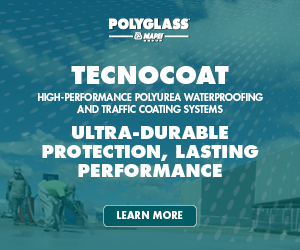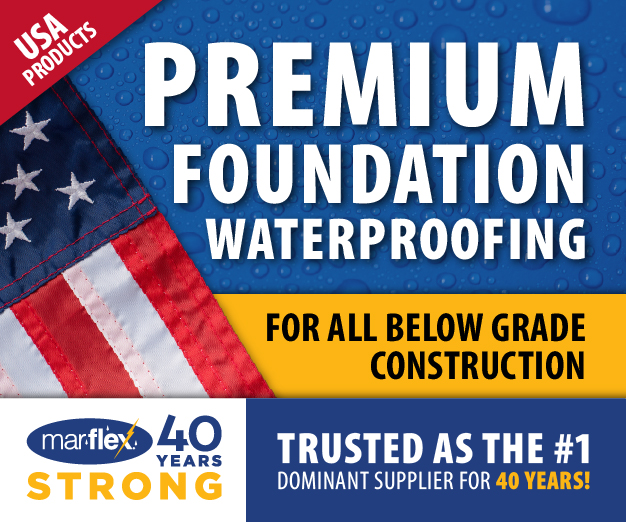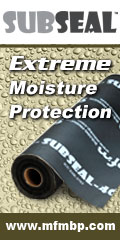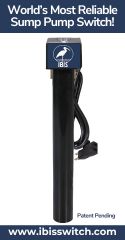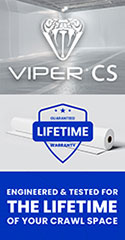
New ANSI Wind Standards Approved
Two and a half years in the making, the American National Standards Institute (ANSI) has finalized new guidelines on how to protect green roofs from wind uplift.
Titled Wind Design Standards, RP-14, the standard provides a method of providing adequate wind uplift resistance for vegetative roofing systems. It is intended to provide a minimum design and installation reference for those individuals who design, specify, and install green roofs. It is intended to be used in conjunction with, or enhanced by, the installation specifications and requirements of the manufacturer of the specific products used.
The effort to develop the new standard was spearheaded by Green Roofs for Healthy Cities and the Single Ply Roofing Industry under the leadership of Kelly Luckett and Mike Ennis.
Meadows New Distribution Partner for Gemite
W.R. Meadows has entered a strategic partnership with Gemite Products Inc., a global provider of construction chemicals. Gemite manufactures unique waterproofing products, and W.R. Meadows is now the exclusive distributor for these products in the United States.
The initial product offerings in the U.S. are Adicon CW Plus, an integral waterproofing admixture; Cem-Kote CW Plus, a crystalline in-depth waterproofing product; Cem-Kote Flex CR, a flexible, chemically resistant waterproofing coating; and Cem-Kote Flex ST, a positive and negative waterproofing product. These products are specially formulated for wastewater treatment plants, water tanks, containment structures, and various other applications.

Sto Finish Seals Envelope on Two Projects
In October of 2009, the United States Army Corps of Engineers (USACE) created requirements for building air tightness and building air leakage testing for new and renovation Army construction projects.
The testing, in accordance with ASTM E 2178, must demonstrate that the air leakage rate of the building envelope does not exceed 0.25 cfm/sq. ft.
Sto Corp., the Atlanta-based maker of waterproofing and exterior finishing products, recently proved their StoGuard fluid-applied air and moisture barrier far surpassed this standard on two projects on opposite sides of the country.
The first building is part of the larger Joint Base Lewis-McChord Whole Barracks Renewal project in Washington state. Results from the blower door test, indicated that the StoGuard assembly scored 0.11 in final testing—56% less air leakage than the new standard requires.
The project was the BEC/BSA 2010 Air Barrier Design Challenge held in Boston in late May. Ten teams of practicing design and construction professionals assembled 4’ x 8’ building envelope mock-up panels with a variety of membrane and fluid-applied air and moisture barrier systems. The Sto Team used StoGuard, which was the only product tested that did not leak in both the air and water tests, including at the sensitive material joints or at screw holes.
The two testing methods used in the challenge were the ASTM E 783 (field test for air leakage) and the ASTM E 1105 (field test for moisture leakage).

Henry Offers Green Roof Warranty
Henry Company provides single-source warranties for all components of its Vegetative Roof Assembly systems, from the waterproofing membrane to the vegetation.
“Henry Company’s single-source warranty is supported by a stable company that has been in roofing for decades, and that understands the needs of today’s building owners,” said Henry Company’s Chris Brink, senior vice president of marketing, product management and strategic development.
Green roof products covered by the warranty include its 790-11 waterproofing membrane, a premium, styrene butadiene styrene (SBS)-modified hot rubberized asphalt membrane. This flexible, reliable membrane performs the most critical function on a vegetative roof: ensuring that the roof remains leak-proof for the life of the warranty.
Vegetative roofs, which have been common in Europe for decades, are being specified more in North America for their environmental and economic benefits. These benefits include reducing water runoff, which helps to alleviate wastewater and stress on sewage treatment plants; helping to alleviate urban heat-island effect by reducing building temperatures by as much as 20 degrees F; and improving air quality.

NAWSRC is now Basement Health Association
The National Association of Waterproofing and Structural Repair Contractors (NAWSRC) is now the Basement Health Association (BHA).
The members voted to change the association’s name at their annual meeting in San Antonio in August 2010.
NAWSRC memberships will automatically be transferred to the Basement Health Association. The NAWSRC Certifications are still valid and the members can use both logos.
Essentially, the Basement Health Association will be an umbrella association encompassing all the industries that effect the basement and building environment.
The Basement Health Association will encompass waterproofing and structural repair contractors, crawlspace contractors, radon mitigators, mold remediators, roofers, drainage con-tractors, landscapers, home inspectors, real estate agents and even consumers. It will link together individuals to educate the contractor and the public on the issues and solutions leading to a healthy basement and home.
The new Basement Health Association website, www.basementhealth.org, will launch in October. The new website is a video-based, educational website helping consumers find answers and locate contractors nationwide. The old www.nawsrc.org website will still be online with a link to the new website.
Along with the association name change, the membership also elected a new presidency and three new board directors during the Annual Meeting.
The Basement Health Association’s next educational regional seminar will be in Boston, Mass., on October 15, 2010.

Rhino Linings Acquires Tobin
Rhino Linings Corporation, the company made famous by its durable truck bed lines, has acquired Tobin Manufacturing, a leading producer of two-component positive-displacement dispensing equipment.
Tobin equipment dispenses polyurethane elastomers, epoxies and foams into molds for high volume production.




